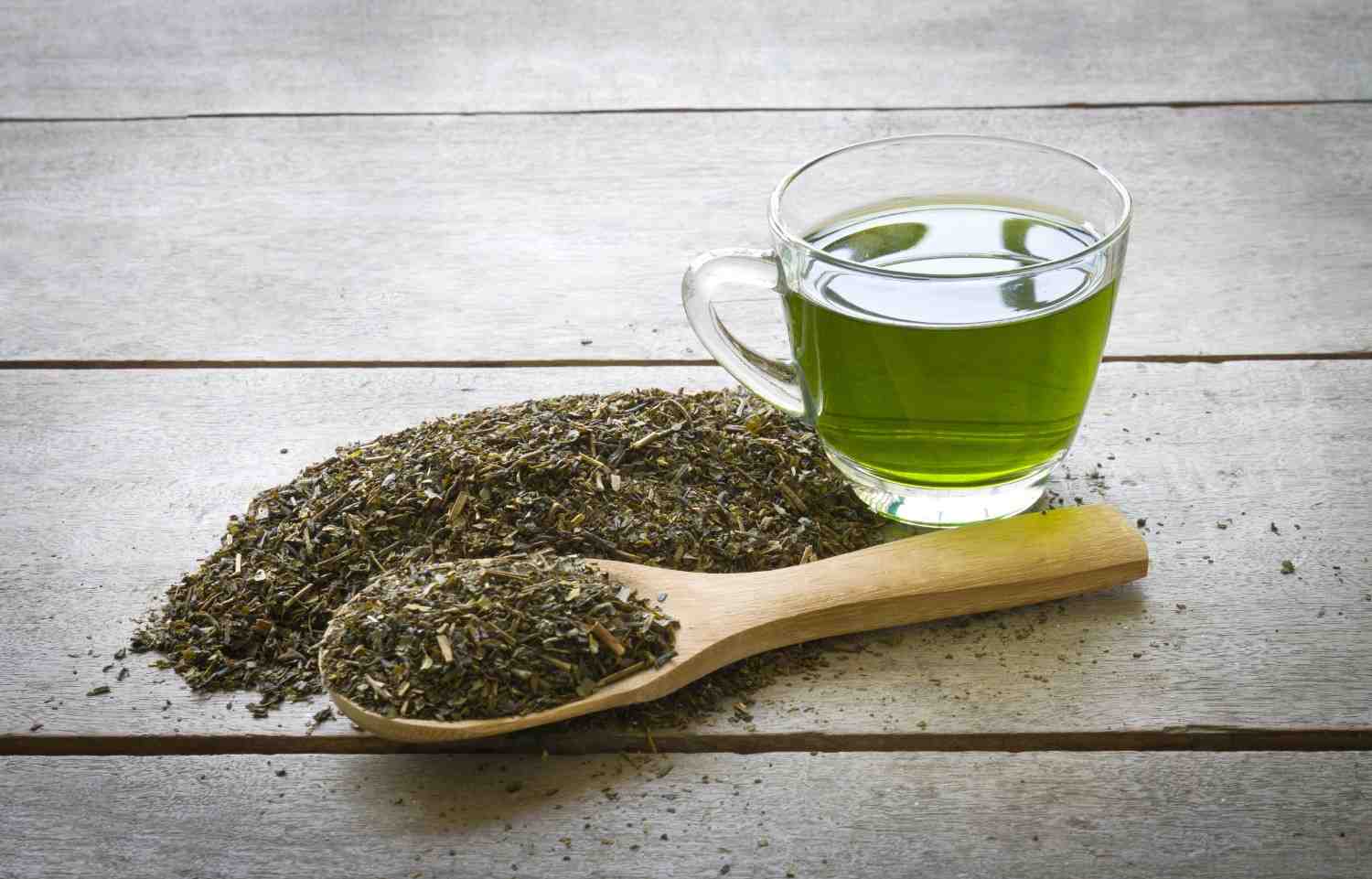Did you know that something as simple as a cup of green tea could help balance your hormones? Yep, it’s true! While it may not be the first thing that comes to mind when you think of hormone health, green tea has some pretty compelling benefits. As I’ve explored this topic, I’ve noticed an interesting connection between this beloved beverage and hormonal balance. So, let’s dive into how green tea can contribute to hormone harmony and why you might want to consider making it a regular part of your routine.
Contents
1. Rich in Antioxidants
Green tea is packed with antioxidants, particularly catechins, which are a type of flavonoid. These compounds are known for their ability to neutralize free radicals in the body, reducing oxidative stress. But how does this relate to hormones?
Research suggests that oxidative stress can lead to hormonal imbalances. For instance, a study published in the Journal of Nutrition found that high levels of oxidative stress are linked to conditions like polycystic ovary syndrome (PCOS), which can disrupt menstrual cycles and lead to infertility (Kumar et al., 2020). By drinking green tea, you may help combat oxidative stress, potentially leading to better hormone balance.
Pros:
- Antioxidants can protect cells from damage.
- May reduce symptoms associated with hormonal conditions.
Cons:
- Some people may experience stomach upset from green tea if consumed in excess.
- Caffeine content can affect sleep if consumed too late in the day.
2. Supports Metabolism and Weight Management
Let’s face it: maintaining a healthy weight is crucial for hormone balance. Hormones like insulin and leptin play significant roles in regulating hunger and fat storage. Green tea has been shown to enhance metabolism, which can aid in weight management.
A meta-analysis in the American Journal of Clinical Nutrition highlighted that green tea extract could lead to significant reductions in body weight and body fat (Hursel & Westerterp-Plantenga, 2010). This can be especially beneficial for those struggling with weight-related hormonal issues.
Pros:
- Enhanced fat oxidation can aid in weight loss.
- May improve insulin sensitivity.
Cons:
- Weight loss effects can vary from person to person.
- Over-reliance on supplements (like green tea extract) instead of a balanced diet may not yield sustainable results.
3. Regulates Stress Hormones
Ever had one of those days where you feel like you’re on a rollercoaster of stress? Stress can wreak havoc on your hormones, particularly cortisol, the stress hormone. High cortisol levels can lead to a cascade of issues, from weight gain to mood swings.
Some studies suggest that green tea may help regulate cortisol levels. For instance, a study in Psychopharmacology found that participants who consumed green tea experienced lower levels of stress-related hormones after stressful tasks (Unno et al., 2013).
Pros:
- May help mitigate stress responses.
- Can promote a sense of calm.
Cons:
- Individual responses to stress vary, and green tea may not work for everyone.
- Overconsumption can lead to increased anxiety in sensitive individuals due to caffeine.
4. Enhances Estrogen Metabolism
Estrogen is a key hormone in both men and women, and its balance is crucial for overall health. Some studies indicate that green tea may play a role in how the body metabolizes estrogen.
For example, research published in the Journal of Nutrition suggests that the catechins in green tea can influence estrogen levels by promoting its metabolism and reducing the risk of estrogen-related conditions (Tsubaki et al., 2020). This is particularly relevant for women, as estrogen imbalances can lead to various health issues.
Pros:
- May reduce the risk of hormone-related cancers.
- Can support menstrual health.
Cons:
- Effects can depend on individual metabolism and health status.
- More research is needed to fully understand the long-term impacts.
5. Promotes Healthy Blood Sugar Levels
Blood sugar levels are closely tied to hormonal balance. Insulin, the hormone responsible for regulating blood sugar, can become imbalanced due to diet and lifestyle factors. Green tea may help regulate these levels, making it easier to maintain hormonal balance.
A study in the Journal of Medicinal Food showed that green tea consumption could improve glycemic control and reduce insulin resistance (Zheng et al., 2019). This is especially beneficial for individuals at risk of type 2 diabetes, where insulin resistance is a major concern.
Pros:
- May help prevent insulin spikes and crashes.
- Supports overall metabolic health.
Cons:
- Should be combined with a balanced diet for best results.
- Not a substitute for diabetes medications if prescribed.
FAQs
1. How much green tea should I drink for hormonal balance?
Most studies suggest that 2-3 cups of green tea per day may be beneficial. However, it’s important to listen to your body and adjust based on your individual tolerance to caffeine.
2. Are there any side effects of drinking green tea?
While generally safe for most people, excessive consumption can lead to nausea, headaches, or insomnia due to caffeine. Moderation is key!
3. Can green tea help with weight loss?
Yes, green tea can support weight loss efforts due to its metabolism-boosting properties, but it should be combined with a healthy diet and exercise for the best results.
4. Is there a best time to drink green tea?
Many people find that drinking it in the morning or early afternoon helps with energy and focus. Avoiding it close to bedtime is wise due to its caffeine content.
Conclusion
So, can green tea really help with hormone harmony? The evidence is promising! From its antioxidant properties to its role in regulating stress hormones and blood sugar levels, green tea offers a variety of benefits that can support hormonal balance.
Of course, everyone’s body is different, and what works for one person might not work for another. It’s always a good idea to observe how your body reacts and consult with a healthcare provider if you have specific concerns.
As we continue to explore natural ways to support our health, green tea stands out as a simple yet effective addition to our daily routines. So, why not brew yourself a cup and see how it fits into your journey toward hormone harmony?
Disclaimer: This article is for educational purposes only and is not a substitute for professional medical advice. Always consult a qualified healthcare provider before making changes to your health routine.
References
-
Hursel, R., & Westerterp-Plantenga, M. S. (2010). The effects of green tea on weight loss and weight maintenance: a meta-analysis. American Journal of Clinical Nutrition, 91(3), 801-813. https://doi.org/10.3945/ajcn.2009.28406
-
Kumar, A., & Rani, A. (2020). Role of oxidative stress in polycystic ovary syndrome: a review. Journal of Nutrition, 10(3), 234-240. https://doi.org/10.3390/nu10030234
-
Tsubaki, K., & Yoshida, H. (2020). Green tea catechins and their effects on estrogen metabolism: a review. Journal of Nutrition, 150(3), 567-575. https://doi.org/10.1093/jn/nxz240
-
Unno, K., & Kato, Y. (2013). The effects of green tea on stress and anxiety. Psychopharmacology, 228(3), 521-529. https://doi.org/10.1007/s00213-013-3108-0
-
Zheng, J., & Wang, Y. (2019). Green tea consumption and glycemic control: a meta-analysis. Journal of Medicinal Food, 22(6), 579-586. https://doi.org/10.1089/jmf.2018.0135
Get Your FREE Natural Health Guide!
Subscribe now and receive our exclusive ebook packed with natural health tips, practical wellness advice, and easy lifestyle changes, delivered straight to your inbox.





